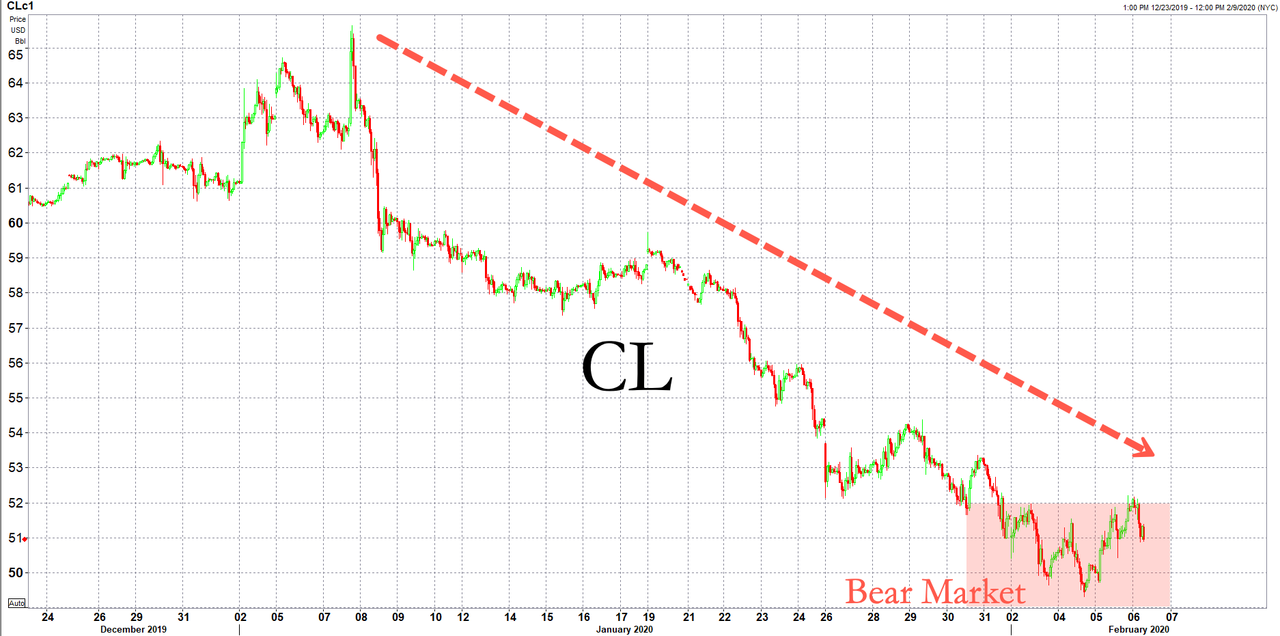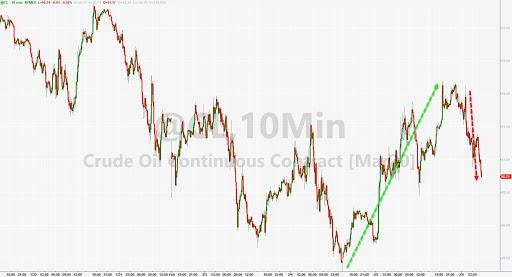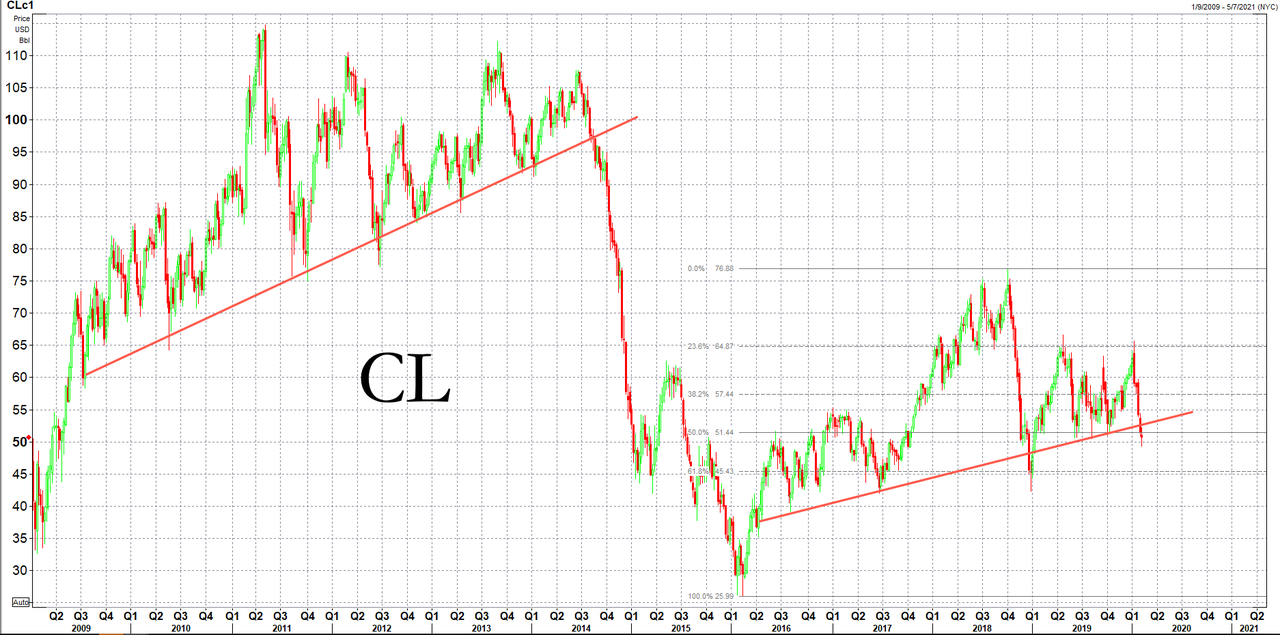OPEC+ Committee Fails To Agree On Proposed Production Cuts
Oil futures remain in a bear market following the collapse in oil demand from China amid two-thirds of its economy shutdown following the coronavirus outbreak.
Crude rallied Wednesday on inventory builds, mostly on the hope that the OPEC+ meeting would lead to cuts. However, any gains that were seen are being quickly erased as of Thursday morning.
This forced the OPEC+ technical committee to meet in Vienna, Austria, for a third day this week, to discuss the importance of slashing oil output by at least 500,000 barrels per day (bpd), reported Reuters.
The Joint Technical Committee (JTC) is an advising body of OPEC and Russia, known as OPEC+.
As of Thursday, there’s no firm decision by the technical committee to cut oil production. This is because Russia has opposed to cuts and said it would be willing to agree on an extension of current cuts.
Ransquawk reports that the meeting has officially ended without a planned resolution of production cuts.
The technical committee meeting comes ahead of a planned OPEC+ conference on March 5-6.
OPEC+ has already agreed in December to remove 1.7 million bpd from markets in response to a slowing global economy. Now the deadly virus outbreak has created a “shock” in the global economy as China’s economy grinds to a halt. The country is the largest importer of crude in the world, suggesting that demand has collapsed, and oil prices will plunge deeper if supply isn’t curbed.
Russian Energy Minister Alexander Novak said on Tuesday that he wasn’t sure if it was time to tighten output further.
BP CFO Brian Gilvary warned Tuesday that the virus outbreak has reduced 2020 global demand growth by 300,000-500,000 bpd, or about 0.5%.
OPEC will have to cut at least 500,000 barrels a day in order to offset the coronavirus’ impact on energy demand, this analyst says. https://t.co/BoD4IiqHjJ pic.twitter.com/MK1odRhclg
— CNBC International (@CNBCi) February 6, 2020
Gilvary said the global economy is expected to weaken because of the developments in China.
Energy to industrial metal futures contracts have plunged in the last several weeks, as commodity traders sell first and ask questions later.
“The magnitude of the demand shock that we’re seeing is on par with 2008 to 2009” financial crisis, Jeffrey Currie, global head of commodities at Goldman Sachs Group Inc., said in a Bloomberg television interview. During that slump, prices fell from above $140 a barrel down into the $30s.
Commodity supply chains in China and across the world have already been disrupted. China told Chile on Wednesday to defer cargoes of copper. Crude oil and liquefied natural gas to China slumped this week to near zero.
The virus outbreak in China has led to the creeping economic paralysis that risks a hard landing. Industrial activity has collapsed, and the proposed opening of factories early next week is being pushed out even further. This would certainly create supply chain shocks that will be felt around the world.
Tyler Durden
Thu, 02/06/2020 – 08:10
via ZeroHedge News https://ift.tt/39fvbiG Tyler Durden


